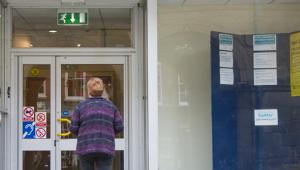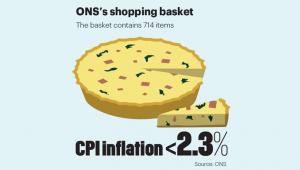Quick wins
Fishy business nets more value: Scottish ships landed 453,300 tonnes of fish in 2016, worth £563m – annual rises of 3% and 29% respectively – Scotland’s chief statistician has said. There were 2,038 active vessels, a 1% increase on 2015, and the number of fisherman employed was unchanged at 4,823. Mackerel was the most valuable stock.
Cross carefully: the number of school lollipop staff in Wales has fallen by almost a quarter in the past three years. In March 2016, the number of crossing patrol staff employed by local authorities fell by 170 to fewer than 600 compared to three years earlier – a drop of 23%.
Wizards of Oz: the Australian economy has broken the global record for staying recession free, enjoying 26 years of consecutive growth, according to its official statistics bureau. However, Australian growth slowed to its lowest level since 2009 in the first three months of this year.
EU citizens leave UK
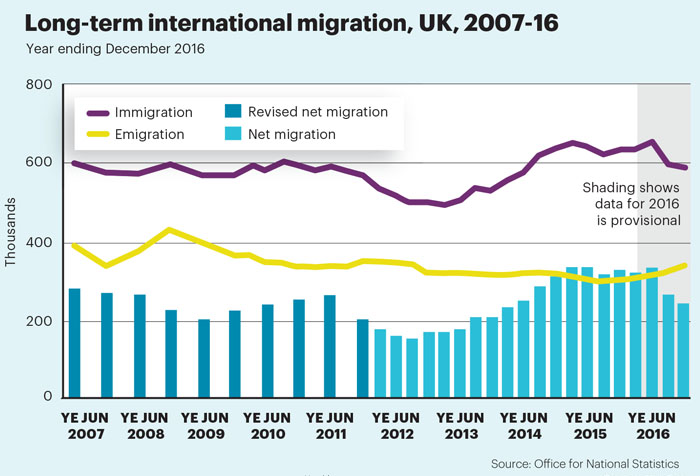
Net long-term international migration to the UK was 248,000 in 2016, down by 84,000 from 2015, according to Office for National Statistics estimates. Within that, total immigration was estimated at 588,000 and emigration 339,000.
The change in net migration was driven by a rise in emigration, mainly by EU citizens. EU immigration numbers were down by 25,000 to 48,000; there were 16,000 more emigrants at 43,000. This resulted in the smallest net migration estimate since the eight eastern European countries joined the EU in 2004.
Work remained the most common reason for migration, accounting for 275,000 people immigrating – 33,000 fewer than in 2015 – of whom 180,000 had a definite job.
Brexit brethren
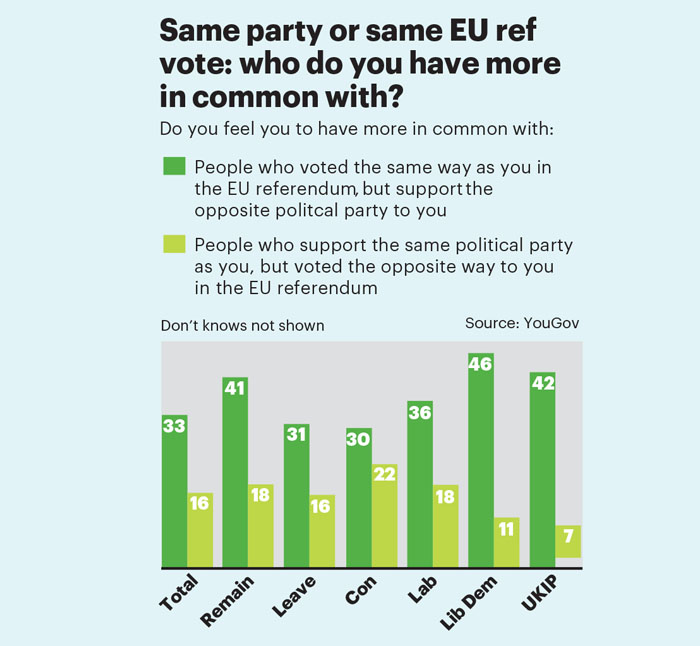
Brexit feelings run deeper than party political loyalties, a YouGov poll has suggested. Brits felt they had more in common with people who voted the same way as them in the EU referendum than those backing the same party.
One in three people felt they had more in common with someone who voted the same as them in the EU referendum, even if they supported a different political party. Just 16% thought they had more in common with people who supported the same party but voted a different way in the EU referendum.
New council homes
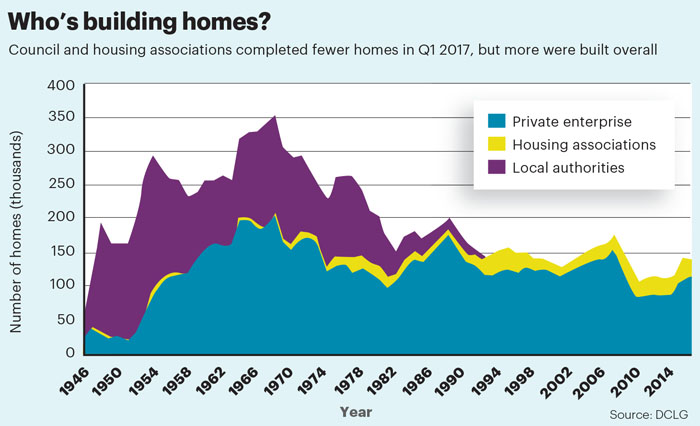
Council house building completions in England dipped again in the first quarter of 2017 to 1,840 from 2,080 in the quarter before, Communities and Local Government figures updated in May showed.
New home completions by housing associations went up from 23,990 in the last quarter of 2016 to 25,090 in January to March this year.
The number of completions as a whole rose 6% in England, with those built by the private sector going up 9% from 114,800 in October to December last year to 121,030 in the first quarter of this year.
As can be seen by the graph above, local authority homes built has been minimal in comparison to those completed by the whole sector – particularly the private sector – since the 1980s.
Income gap narrows a little
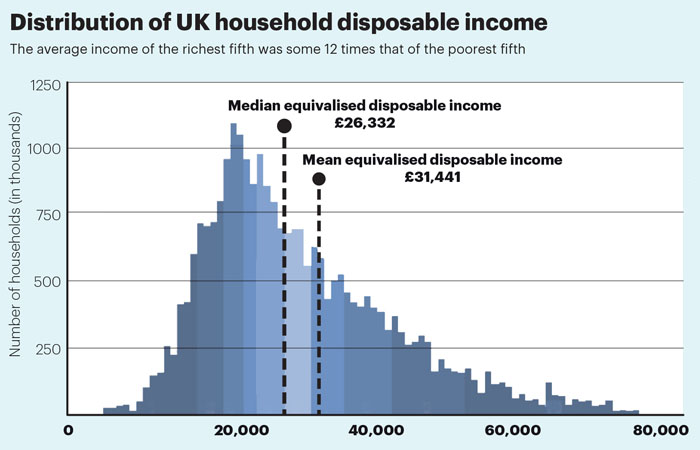
The gap between the average income of the richest and poorest households has narrowed, according to the Office for National Statistics. For the 2015-16 financial year, it said the average income of the richest fifth of households before taxes and benefits was £84,700, some 12 times greater the £7,200 of the poorest fifth.
An increased average income for poorer households had reduced this ratio from the 14:1 seen in the previous year. On average, households paid £7,800 per year in direct taxes, equivalent to 18.7% of their gross income. The poorest households, however, paid 27% of their disposable income in indirect taxes – such as value added tax and duties on alcohol and fuel – and the richest only 14.4%. “Therefore, indirect taxes cause an increase in income inequality,” the ONS said.
Police funding fall
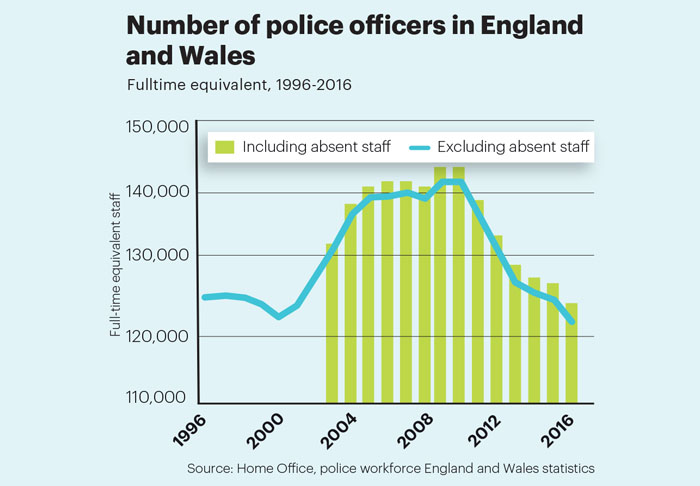
Policing numbers were a major cause of concern after terrorist attacks at the Manchester Arena and London Bridge
in May.
The number of full-time police officers in England and Wales fell by 14% – almost 20,000 officers – between 2009 and 2016, the Institute for Fiscal studies said.
It said that Labour’s pledge to hire 10,000 more officers by 2021-22 could cost over £298.8m. Hiring more police community support officers and back-office staff might be “cheaper and more effective” and allow officers to spend more time on ‘core’ police activities”, the IFS said.
Public or private ownership?
There is overwhelming public support for public services to be publicly run, with many people saying privatised industries should be returned to public hands.
With Labour putting nationalisation back on the agenda, pollsters at YouGov asked people which of 13 industries they would like to see in public rather than private hands.
More than 80% of people said the police, the NHS, schools and the armed forces should be publicly run. There was also majority support for public control of the Royal Mail (65%), railways (60%), water providers (59%), energy suppliers (53%) and the BBC (58%).
However, most people thought the private sector should run banking, airlines and telephone and internet providers.
Labour voters were more likely to think an industry should be run by the state than Conservative supporters
“Whether someone supports nationalisation or privatisation has been a stereotypical indicator of party allegiance for decades, with Labour being seen as supporters of nationalisation and Tories being seen as supporters of privatisation,” YouGov noted.
“The results show that this still holds true.”




